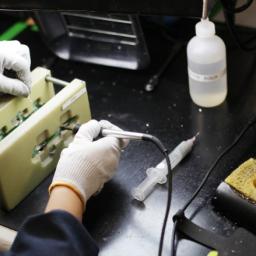"We have seen a concerning trend that is about to spiral out of control: Potentially Unwanted Programs (PUPs) are further on the rise. What's even more concerning is how they are spreading. After big vendors as Oracle (Java) and Microsoft (Bing and Skype) started bundling, now antivirus vendors have joined the game. We did research on some of the most popular PUP practices among the freeware antivirus vendors, and the results are quite disturbing.
PUPs want to get on your computer to make money off of you"
http://blog.emsisoft.com/2015/01/17/has-the-antivirus-industry-gone-mad/
It is one of the most toxic substances known to man and has been used to poison kings, emperors and even prize winning racehorses. Worldwide arsenic poisoning caused by contaminated water and food is thought to harm more than 137 million people. Even low levels of arsenic poisoning can cause damage to the lungs, heart, kidneys and liver, leading to cancer, heart disease and diabetes. But scientists have discovered one small population of people living in a remote part of the Andes in north west Argentina who
have developed some resistance to arsenic. They have found that over thousands of years the local inhabitants there have developed a genetic ability to metabolise the arsenic to reduce the impact it has on their bodies. They found one gene in particular - AS3MT, which is thought to play a role in arsenic metabolism - occurred in far higher frequencies compared to populations living in Columbia and Peru.

"
Blackphone 2 caters to the enterprise, the security-minded and the paranoid" they say, and these days, that is a slogan that just might catch your attention. It caught mine.
While much of the news coming out of MWC 2015 has been dominated by Microsoft's Lumia 640, the Samsung Galaxy S6 Edge, and tablets from Sony, there's always room for something a little different. Following on from the security-focused Blackphone, Silent Circle used the Barcelona event to announce the follow-up -- the Blackphone 2. The privacy-centric company has been working on the "world's first enterprise privacy platform" for some time now and the second generation Blackphone. As you would expect, there's a faster processor than before -- an 8-core beast -- as well as an upgraded 3GB RAM, a larger 5.5 inch screen and a bigger battery than before. Blackphone 2 has a $600 price tag and will be unleashed in July.
I might not be the only one frustrated with the Android-vs-Apple smartphone duopoly, and I'm sure I'm not the only one annoyed with the feeling that my phone was rooted since the moment I took it out of the box. Here's wishing good fortune to an alternative that makes security and privacy paramount.
After 2 years and 10 months,
XFCE 4.12 has been released, and its changelog is an impressive list of refinements, improvements, and new features.
For starters, they've streamlined the code, removing a whole host of options the developers decided were no longer the best way to accomplish common tasks. The minimize/maximize buttons are gone now, and all apps run full-screen all the time. You can access a subset of options via keystroke combinations (sadly, these haven't been documented yet but they should be obvious).
Oh wait, just kidding. Must have been thinking about some other desktop environment there. Seriously, have a look at the user-friendly improvements the XFCE team has worked into this release.
Check out the link for a multiple-page change log of significant features, including improvements to alt-tab dialogues, panel features, usage with multiple monitors, a move to GTK3, and more. XFCE remains independent of Linux-specific system features, and instead designed a front-end/back-end approach that allows it to work equally well on Linux, the BSDs, and beyond. As a BSD-user, I'm immensely proud. Finally, note throughout the press release the number of times they mention listening to their users and implementing the features that users said they wanted. More than one other major project could benefit from a similar approach to working with its community.
[Edit 2015-03-02 22:25 There was a very important "just kidding" sentence between paragraphs 2 and 3 that was important, because paragraph 2 is a joke. I've re-added it; otherwise I would expect to be flamed alive by angry XFCEers wondering why i'm such an idiot].
HP has become the latest "legacy" IT vendor to announce it would ship commodity switches for web-scale data centers that support network management software other than its own. HP Switches
will run the Cumulus Linux OS. The company claims the approach can reduce data center operating costs by up to 68 percent. HP's competitors Dell and Juniper have already announced open commodity network switches of their own. Dell said it would ship data center switches with a Linux-based network operating systems by Cumulus Networks or by Big Switch Networks, as alternatives to its own network OS, last year. Notably, Cisco has not introduced commodity switches. The world's largest data center networking vendor has built an empire selling tightly coupled hardware-and-software bundles, and cheap open network hardware is a threat to its dominance. However, Cisco too has been slowly offering more software-defined networking/
OpenFlow features and compatibility in their hardware.
Internet giants, such as Google, Facebook, and Amazon, which operate massive data centers around the world, have found it more effective to design their own hardware and have so-called "Original Design Manufacturers," the likes of Taiwan's Quanta and Foxconn, manufacture it for them. The trend has created a problem for incumbent IT vendors, such as HP, Dell, IBM, and Cisco, which found themselves competing with contract manufacturers of their products for the same high-volume deals. Facebook, through its
Open Compute Project, offers design specs and has spread awareness about cost effectiveness of this IT procurement model. There is now growing interest in low-cost commodity hardware among enterprises who are not necessarily Internet giants, creating a new threat to the incumbents' market share.
Researchers from the Swiss Federal Institute of Technology have developed a pair of
telescopic contact lenses with 2.8x magnification. Really just a pair of super-tiny aluminum telescopes, the contacts are still only about 1.5 millimeters thick, and feature 1 mm-wide channels or pores that allow the required breathability - maintaining airflow. This last part proved to be one of the biggest challenges, requiring years of experimentation.
While the contacts do all the work, they currently require polarized glasses to turn the magnification on or off. That said, the researchers are working towards an on/off capability - activated by winking. "We think these lenses hold a lot of promise for low vision and age-related macular degeneration (AMD)." But will a wider and more general user-base be interested in contact lenses that covertly give them super-human telescopic vision?
It is a sad day for Science Fiction and film fans.
Leonard Nimoy, the sonorous, gaunt-faced actor who won a worshipful global following as Mr. Spock, the resolutely logical human-alien first officer of the Starship Enterprise in the television and movie juggernaut "Star Trek," died on Friday morning at his home in the Bel Air section of Los Angeles. He was 83.
The New York Times has the details.Live long and prosper, Leonard.

The pay-TV industry has reported its
worst 12-month stretch ever. Ratings for both cable and the broadcast networks are down. There has been negative ratings growth on broadcast and cable TV since September 2011. The number of U.S. households is still growing, but fewer households have TV because they are watching video on mobile devices instead. The amount of video viewed on mobile devices is going through the roof. About 40% of all YouTube traffic comes from mobile.
Broadband internet was supposed to benefit from the end of cable TV, but it hasn't; people are also unplugging from broadband internet service. Most are likely utilizing free wifi hotspots provided by businesses, campuses and some cities. Fifty-seven cities in the U.S., including Los Angeles, offer free wifi; anyone within range of a hotspot can avoid the monthly fees.
Cable TV ratings are in an historic slump, but revenues are still rising because companies are charging the dwindling number of customers more in subscription fees. Those higher prices are "part of the problem" that pushes out poor subscribers - losing the TV business even more eyeballs. This is having a counter-intuitive effect on TV ad sales: prices are going up. It's still really difficult to gather a large, mass audience in any kind of media. That scarcity makes TV's dwindling-but-still-big audience increasingly valuable... for now. Ad dollars are likely to follow that shift in the long run.



